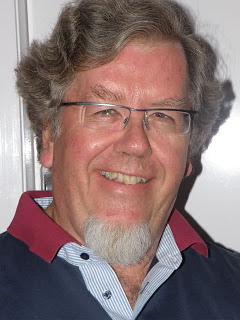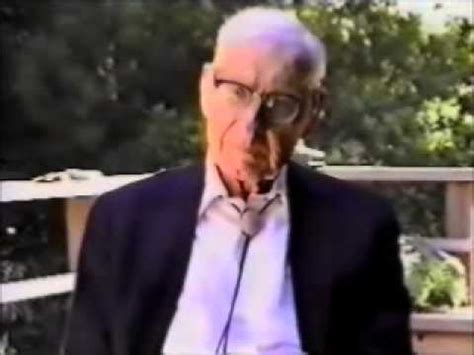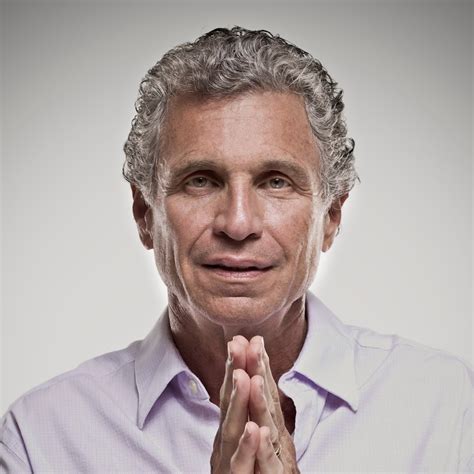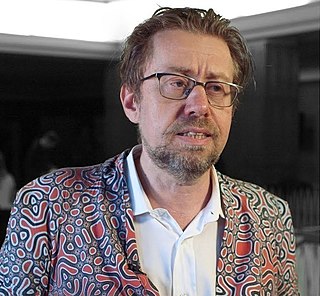Top 45 Shamanism Quotes & Sayings
Explore popular Shamanism quotes.
Last updated on April 22, 2025.
Where our knowledge of beauty harmonizes with the ludus naturae, sorcery begins.No, not spoon-bending or horoscopy, not the Golden Dawn or make-believe shamanism, astral projection or the Satanic Mass--if it's mumbo jumbo you want go for the real stuff, banking, politics, social science--not that weak blavatskian crap.
We find that alchemy has to do with magicians or magic and may even have roots in the Chaldean people who lived in the land that we now call Iraq.Abraham emerged and took a flock of people with him into Egypt. They were later called the Hebrews because of the valleys that they came out of. The alchemy that they saw was a transformative power within the individuals to affect the "out there" reality - and that, of course, is the basis of shamanism and is the basis for most magical and so-called Third World belief systems.
You are human, whether your ancestors come from Europe, Asia, Africa, or wherever, shamanism once existed there. We are just attempting to go home to our spiritual roots before the state religions, the agrarian centralized religions rose up with autocratic government and said, 'This is what you're going to believe, these are the official revelations, take it from us, you can trust us, we got it.'
If a state political organization is founded in part upon a state religion with a dogma based on one or a few 'official' prophets, then shamanism, where every shaman is her or his own prophet, is dangerous to the state. [...] Shamanism, as I said, is not a religion. The spiritual experience usually becomes a religion after politics has entered into it.
When we are clear enough about our own point of view, we can find help in the methods of Eastern Christianity or in the ways of the Far East, perhaps by consulting the I Ching or through mandala contemplation; we may even find help in the ways of shamanism or Islam. If we are clear about where we stand and the direction we must take, such methods may be useful in order to follow our own way to the end.
Nature is not our enemy, to be raped and conquered. Nature
is ourselves, to be cherished and explored. Shamanism has always known this,
and shamanism has always, in its most authentic expressions, taught that the
path required allies. These allies are the hallucinogenic plants and the
mysterious teaching entities, luminous and transcendental, that reside in that
nearby dimension of ecstatic beauty and understanding that we have denied until
it is now nearly too late.
It isn't that a warrior learns shamanism as time goes by; rather, what he learns as time goes by is to save energy. This energy will enable him to handle some of the energy fields which are ordinarily inaccessible to him. Shamanism is a state of awareness, the ability to use energy fields that are not employed in perceiving the everyday-life world that we know.
An indigenous culture with sufficient territory, and bilingual and intercultural education, is in a better position to maintain and cultivate its mythology and shamanism. Conversely, the confiscation of their lands and imposition of foreign education, which turns their young people into amnesiacs, threatens the survival not only of these people, but of an entire way of knowing. It is as if one were burning down the oldest universities in the world and their libraries, one after another — thereby sacrificing the knowledge of the world's future generations.
In shamanism and certain yogas, Taoist yoga, claim very clearly that the purpose is to familiarize yourself with this after-death body, in life, and then the act of dying will not create confusion in the psyche. You will recognize what is happening. You will know what to do. And you will make the clean break.
Marcel Eliade took the position that hallucinogenic shamanism was decadent, and Gordon Wasson, very rightly I believe, contravened this view and held that actually it was very probably the presence of the hallucinogenic drug experience in the life of early man that lay the very basis for the idea of the spirit.
Cultural conditioning is like bad software. Over and over it's diddled with and re-written so that it can just run on the next attempt. But there is cultural hardware, and it's that cultural hardware, otherwise known as authentic being, that we are propelled toward by the example of the shaman and the techniques of the shaman. ... Shamanism therefore is a call to authenticity.
The Old Religion, as we call it, is closer in spirit to Native American traditions or to shamanism of the Arctic. It is not based on dogma or a set of beliefs, nor on scriptures or a sacred book revealed by a great man. Witchcraft takes it's teachings from nature, and reads inspiration in the movements of the sun, moon, and stars, the flight of birds, the slow growth of trees, and the cycles of the seasons.
Packed with interwoven personal narratives which the author ties together to show the fragility and molding of Buryat memory and Buryat shamanism's purpose during the transition from state socialism to neoliberal capitalism in Mongolia. . . . Buyandelger has created an emotive, accessible, and well-researched ethnography sure to arouse sympathy and interest in readers.
Shamanism has a long history and exists to this day because of its ties to universal emotions such as happiness, sorrow, resentment, and love. It can function as an outlet during struggles with life and death and the burdens of society's absurdities including the divide between rich and poor. It opens up a way to confront reality.



















